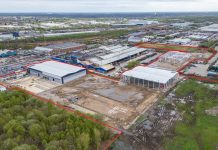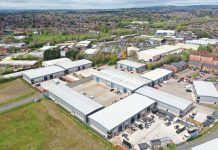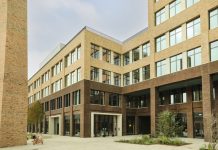By Jonathan Manns, Board Director & Head of Planning & Development, Rockwell:
Every age is defined by certain watchwords. The Eighteenth Century’s was ‘Liberty’, the Nineteenth Century’s ‘Industry’ and, in the Twentieth, it arguably became ‘Community’, which remains the case today. In the century that saw planning emerge as a profession and shift from a movement to a regulatory system, this humble word began to encapsulate what we have always aspired to build.
The idea of a group of people bound together and defined by ‘place’ – rather than traditional devices of income, ethnicity or gender – gives meaning to the true nature of property; that which emerges only once the keys to the front door have been handed over. It through use that ‘place’ both influences and expresses how we define ourselves collectively.
Professionals tend to talk about this in the language of ‘cohesion’ and ‘resilience’, but this fails to capture the true essence of a community and is all too often perceived to be little more than lip-service. Ensuring it isn’t has become a preoccupation for Rockwell and I’m proud that we continue to innovate and improve with each project; from the way in which we engage others in our emerging concepts to embedding our developments into the lives of existing and future community members.
It may seem like a tired cliché to suggest that ‘doing good is good business’ and vice versa, but this should not diminish the fact that it is both apt and accurate. In people-oriented sectors such as hospitality, local staff have knowledge which enhances the quality of service offered and drives success. Across the board, community connections embed organisations and support local growth, whilst living and working in the same community reduces the time and cost of travel, improving quality of life.
This is why, at Rockwell, ensuring those in the communities where we work benefit directly from our schemes has become an obsessive pursuit. At 82 West, in Westferry, we established a hospitality skills training programme so that local residents can obtain the qualifications needed to access the opportunities in our 400-key hotel. It has proven so successful, with the first 30 graduates from December 2019 now all employed, that we’ve rolled it out further. With the support of local training partners, we’ve extended it across London with scope to currently assist 300 people – and this number is growing. At Quay House, Canary Wharf, we’re working with local organisation Parkour Generations to create a space which school and youth groups can activate through exercise, improving health and confidence. The genesis of this innovation comes, almost exclusively, from the communities themselves.
When it comes to making a difference there are, of course, some things which money can’t buy. This may be as simple as having somebody to listen, to encourage and to believe. It is human connections on which a community is ultimately reliant. This is why we work with organisations that provide peer-to-peer support and encourage self-belief, such as Westferry FC youth team in Tower Hamlets. Inevitably, passionate people attract one another, and the more relentlessly Rockwell demand better, the more people we discover who share our passion and commitment to breathe life into our buildings once construction is complete.
Jonathan Manns is widely acknowledged as one of Britain’s foremost urbanists. He is Board Director and Head of Planning and Development at London-based real estate developer Rockwell. He is a writer, speaker, lecturer, campaigner and founder of the APPG for London’s Planning and Built Environment.





















